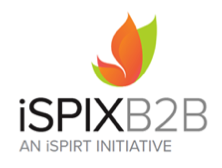An important policy agenda for iSPIRT is to reverse the exodus of technology startups. About 75% of the funded technology startups are redomiciling outside India due to regulatory irritants.
iSPIRT has a Policy Expert Team – called Stay-and-List-in-India – working only on this area since December 2014. This is the policy team that worked closely with SEBI on the “startup bourse” that was notified earlier this year. Mr. Mohandas Pai has been an important guide and mentor to this team.
The Stay-and-List-in-India Policy Expert Team has developed a Stay-in-India checklist. This has 36 items that need to be addressed by Ministry of Finance, Ministry of Corporate Affairs, RBI and DIPP.
After PM Modi’s Silicon Valley visit, Mr. Amitabh Kant, Secretary DIPP, has been pushing hard to make progress on the Stay-in-India checklist. Towards this end, he had organized a cross-ministerial meeting with iSPIRT that was chaired by Mr. Nripendra Misra, Principal Secretary – PMO. The meeting was attended by Secretaries including Mr Madhav Lal, Ministry of Micro, Small and Medium Enterprises; Mr Ashok Lavasa, Ministry of Environment, Forest and Climate Change; Dr. Hasmukh Adhia, Department of Revenue, Mr Shaktikanta Das Department of Economic Affairs, both from Ministry of Finance; Mr. Tapan Ray, Ministry of Corporate Affairs; Mr Ashutosh Sharma, Department of Science & Technology and Mr Krishnaswamy Vijayraghavan, Department of Biotechnology both from Ministry of Science & Technology.
Others present included, Mr Shatrughna Singh, Additional Secretary, DIPP; Ms Snehlata Shrivastava, Additional Secretary, Department of Financial Services, Dr. Renu Swarup, Sr. Advisor, Department of Biotechnology, Mr U S Paliwal, Executive Director, Reserve Bank of India, Mr Hemang Jani, OSD to PM and Operations Officer from the World Bank.

There were three parts in the meeting. The first part was a showcase of 6 technology startups. This was curated, as usual, by Shekhar Kirani, Fellow, iSPIRT (Accel Partners) and Avinash Raghava. The purpose of this session was to highlight that tech startups are key to transforming India at large. They are setup by entrepreneurs from middle class backgrounds who parley their skills into sweat equity to build valuable businesses. The showcased companies included CRMNext, Foradian Technologies, Eko India Financial Services, Snapdeal, Uniken, ForusHealth and Team Indus. They all made carefully prepared 3 min presentations and answered questions.
The Stay-in-India Checklist was discussed in the second part of the meeting. Sanjay Khan (Khaitan Associates) of the Policy Expert Team made the presentation. This was a technical discussion on specific issues. At times, it was very detailed.
In particular, Mr. Shaktikanta Das, Secretary, Department of Economic Affairs, Ministry of Finance and Mr. Amitabh Kant, Secretary, Department of Industrial Policy and Promotion (DIPP) were very proactive in taking suggestions. Mr. Kant did say that they are trying to create a single window to deal with startups.
In the third part of the meeting, there was short discussion about teaching entrepreneurship as a minor in engineering education. This was led by Sanjay Vijaykumar of Startup Village. His talk was very passionate and impactful.
It was cleart that all the officials were determined to make quick progress and were truly concerned by the exodus of tech startups from India. We all ended the meeting with a group photo. One of the senior officials remarked that this moment is important to capture so that we can look back and remember where it all started!
Guest Post by Abhishek Sinha, CEO, Eko India Financial Services


